The Great War
The main causes of the Great War, which began in Central Europe but extended beyond, included conflicts and hostility between the great European powers, as well as militarism, alliances, imperialism, and nationalism. However, the immediate origins of the war lay in the decisions taken by statesmen and generals during the July crises of 1914 caused by the assassination of Archduke Franz Ferdinand of Austria, heir to the throne, and his wife Sophie, Duchess of Hohenberg, in Sarajevo, the capital of Bosnia-Herzegovina, on 28 June 1914.
Gavrilo Princip, an irredentist Serb and member of the Serbian organisation known as the Black Hand shot Franz Ferdinand in the neck and Sophie in the abdomen. Irredentism is any position of a state advocating annexation of territories governed by another state on grounds of common ethnicity or prior historical possession.
The war drew in all the world’s economic great powers which formed two opposing alliances: the Allies, based on the Friendship Agreement signed by the United Kingdom, France, and the Russian Empire, and the Central Powers of Germany and Austro-Hungary. Later on, Italy, Japan, and the United States joined the Allies and the Ottoman Empire and Bulgaria joined the Central Powers.
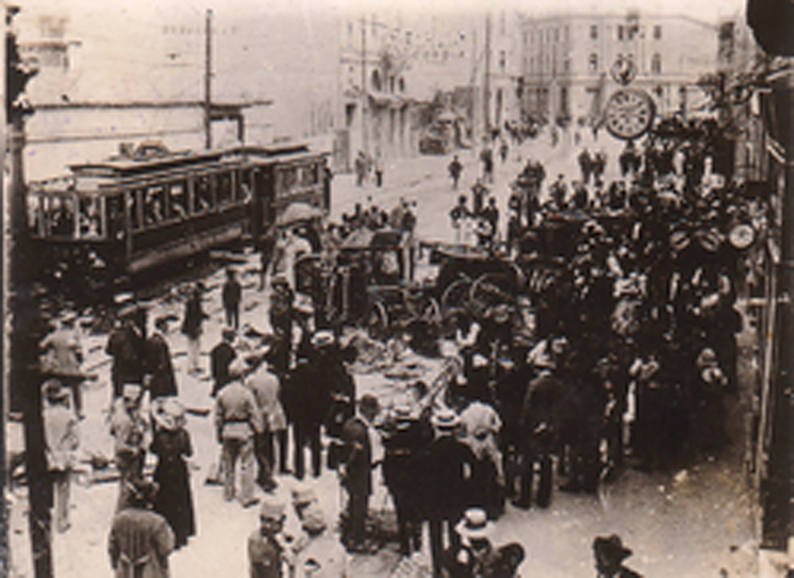
29 June 1914 – Aftermath of attacks against Serbs in Sarajevo
The war lasted until 11 November 1918. During the 4-year conflict, Malta was nicknamed the Nurse of the Mediterranean as it cared for the Allies’ casualties. The Cameronian Scottish Rifles was stationed in Malta together with the regiment’s donkey mascot Jimmy the Sergeant! The total number of military and civilian casualties was over 37 million. There were 16 million deaths and 20 million wounded.
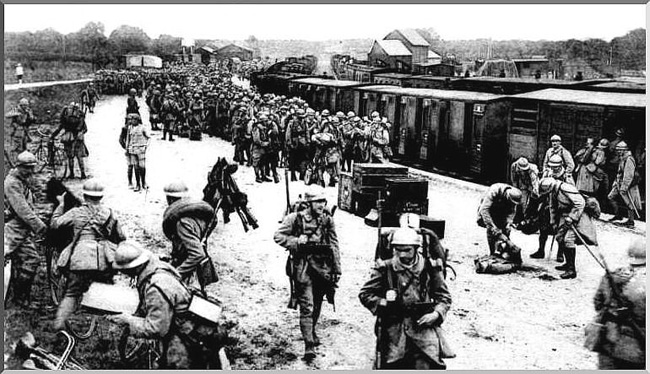
A scene during the battle of Verdun, in France, the longest battle fought in WW1
In Flanders Fields
On 3 May 1915, the Canadian Physician Lieutenant Colonel John McCrae wrote, on the battlefield, after losing friend Lieutenant Alexis Helmer, the legendary poem ‘In Flanders Fields’. The poem’s references to the red poppies that grew over the graves of fallen soldiers resulted in the remembrance poppy becoming one of the world’s most recognized memorial symbols for soldiers who died in conflict.
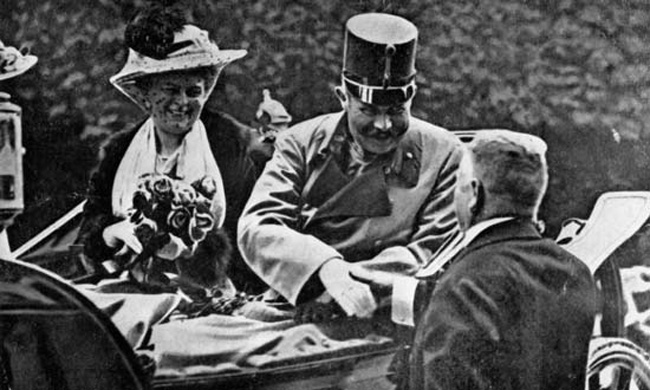
Franz Ferdinand and his wife Sophie minutes before they were shot dead in Sarajevo
Pope Pius X
Pius X (born Giuseppe Sarto), who was elected Pope in 1903, had repeatedly foretold the outbreak of the Great War in Europe. The Secretary of the Vatican State during the Pontificate of Pius X, Cardinal Rafael Merry del Val, testified that, as far back as the years 1911 and 1912, the Holy Father had frequently spoken to him on the approaching conflict.
In his book ‘Memories of Pope Pius X’, Cardinal del Val wrote that ‘On several occasions during the course of those years, four or five times to my recollection, as I entered his room for my morning audience at nine o’clock, His Holiness would open conversation with the following remark: “Eminence, things are going badly … The Great War is approaching … We shall not get beyond the year 1914”.’

Franz Ferdinand and his wife Sophie minutes before they were shot dead in Sarajevo
In the spring of 1914, during one of his leisure walks in the Vatican gardens, Pius X stopped before the grotto of Our Lady of Lourdes, turned to his secretary, Monsignor Giovanni Bressan, who was accompanying him and, foretelling the outbreak of the Great War, told him: ‘I am sorry for the next pope. I will not live to see it.’
In the summer of 1911, Princess Zita of Bourbon-Parma who had just become engaged to the future heir of the Austrian Imperial throne, Archduke Charles, had an audience with Pius X. Charles was second in line to the throne of his great-uncle Franz Josef. The Pope congratulated the princess on her upcoming marriage and referred to her future husband as the heir to the throne.
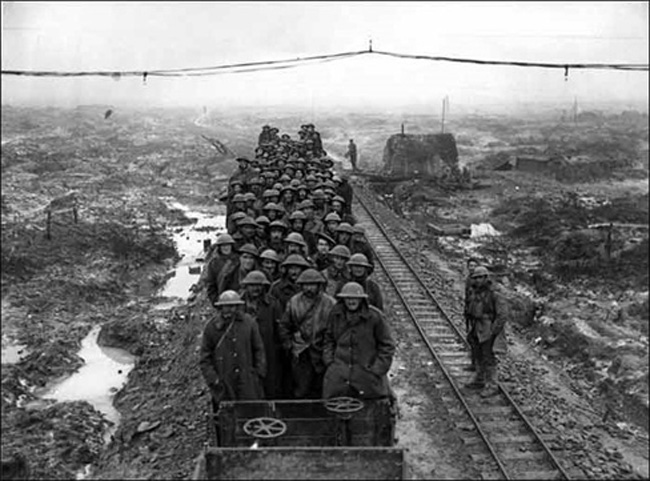
A train carrying British troops through the battlefield in the Flander regions of France during WW1
When the princess pointed out respectfully that her future husband was not the direct heir to the throne, first came his uncle the fated Franz Fedinand, Pius X looked serious and insisted that Charles would soon be emperor. When she assured him that Franz Ferdinand would certainly not abdicate on account of the fact that he was still young, the Pope looked troubled and ponderously said in a low voice: ‘If it is an abdication … I don’t know!’

Army officers at Spinola British Services hospital, Malta in 1917
The bare-footed country boy
Giuseppe Sarto, the bare-footed country boy, was born on 2 June 1835, in the village of Riese, in the Venetian plains, Northern Italy. He studied for the priesthood in the seminary of Padova and received the Holy Orders in the Cathedral of Treviso on 18 September 1858. He was known as The Country Priest and served as the Vice Parish Priest of the village of Tombolo, the Parish Priest of the town of Salzano, the Bishop of Mantova, and the Patriarch of Venice before he was elected Pope on 4 August 1903. Throughout his priestly life, spanning 56 years, he was poor, humble, and holy.
The programme of his Pontificate was the restoring of all things in Christ. He reformed sacred music and reintroduced Gregorian chant, authored the Catechism of the Catholic Church, re-organized the Roman Curia, and reformed the Canon Law. He is remembered as the Pope of the Holy Eucharist and of the children, as he gave little children the opportunity to receive Holy Communion at the early age of seven instead of 14.
Since the outbreak of the war, Pius did his utmost to reverse the conflict. Under his direction, Pontifical diplomacy did all in its powers to negotiate peace but all was in vain. On 2 August 1914, the Pope sent his last exhortation to the Catholics of the whole world to pray for peace. The exhortation, revealed the heartfelt sorrow of the Holy Father in the face of the butchery which was to come.
On 15 August, Pius X felt indisposed suffering from common cold. His physician advised him to rest for a couple of days. However, two nights after, the Pope ran a high temperature and was in pain. The fever worried the Vatican’s medical team. He was diagnosed with pneumonia. He died in the small hours of 20 August 1914. The world newspapers agreed that Pius X was a great Pope and a great saint.
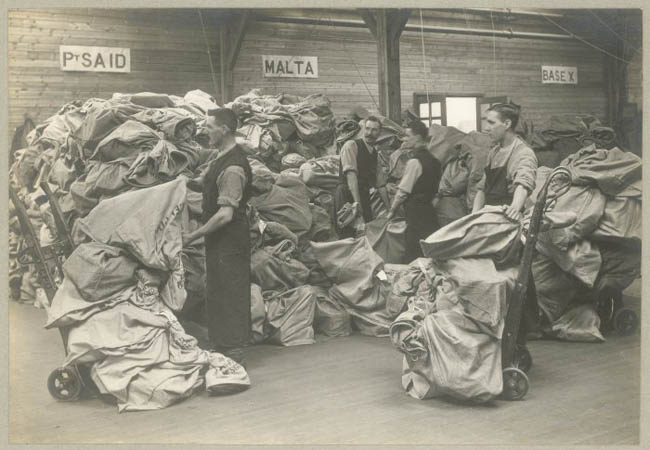
Last post temporary storage of mail bags for despatching at Malta base
It’s a long way to Tipperary
As the Pope worked hard for peace, the Allies and the Central Powers mobilized their armies for war marching to the music of the song ‘It’s a Long Way to Tipperary’ co-written by Jack Jude and Harry Williams!
Pius X was one of the first victims of the war.
Pope Pius XII beatified Pius X on 3 June 1951 and canonised him on 29 May 1954. The parish of Santa Lucija is dedicated to this Saint of the Eucharist, and is at this time celebrating the centenary from this death and the 60th anniversary from his canonization.

Gavrilo Princip, the Serb student who shot dead the Archduke and his wife